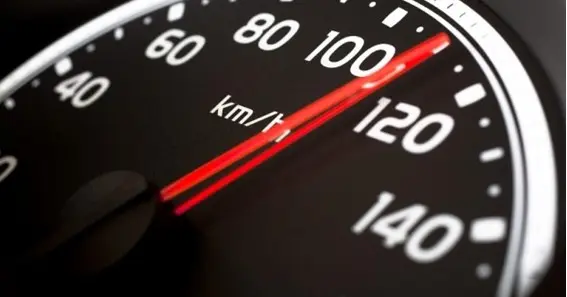What Is Speed? Speed is important for understanding motion because it affects physics. No direction is considered in its numerical description of motion. We can better comprehend how cars and celestial bodies travel by analyzing speed. Speed knowledge helps us make informed decisions, improving our mobility and social skills.
What Is Speed?
Speed is the ratio of an object’s distance to its movement time. A 60-km/h automobile drives that far in one hour. This basic assessment affects sports and direction. Speed is a scalar number with no direction and simply size. This distinguishes it from velocity, a vector number incorporating speed and direction. Understanding speed is crucial in research, engineering, and daily life.
Speed is vital when estimating travel time or equipment performance. By understanding speed, we can make better predictions regarding movement. Speed is also essential for safety, such as observing speed limits to avoid collisions. Speed is crucial to many aspects of life.
All school and college students should not stop reading this article about what is Speed as they will get all the required knowledge about this topic in this post.
How Does Speed Help Us?

To comprehend speed, compute the distance an item covers over time. This notion is important in physics, engineering, and transportation. It improves performance, safety, and decision-making in practical and theoretical settings. Do not stop scrolling down as this article is about what is speed as here readers will know about the significance of speed.
Speed Measurement
Meters per second (m/s) or kilometres per hour quantify distance over time. Measurement varies depending on the environment. Science uses meters per second, but daily life uses kilometres or miles per hour. Speed measurement is crucial for scientific research and driving. Modern equipment like automobile speedometers and GPS systems record speed in real-time, making speed control easier.
Average Vs. Instant Speed
The significant speeds are instantaneous and normal. Instantaneous speed is like a car’s speedometer. Divide your total driving distance by your total driving time to calculate your average speed over time. Understanding these sorts broadens your perspective on motion. An automobile may have a high initial speed when accelerating yet a lower average speed during a journey due to pauses and speed adjustments.
Determining Speed
Speed = Distance is an essential speed measure.
Time Speed = Time Distance
This strategy works for simple straight-line scenarios to more difficult ones with non-straight-line movements. Speed helps us estimate how long it will take to travel a specific distance in a particular circumstance. This estimate helps plan trips, predict arrival times, and locate the best routes.
Speed-Affecting Factors
There are several ways to adjust speed, including force strength, object mass, and material movement. A larger object moving through water will move slower than a smaller object moving through air. Understanding these difficulties is crucial in engineering and transportation. Physics affects how fast an airplane can fly, whereas friction affects how fast automobiles drive on roadways.
Different Speed Uses
Many places employ speed in different ways. It helps plan transit routes and durations. Individuals aim to be speedy to succeed in sports. Speed is crucial for designing machines and understanding motion in physics and engineering. Speed matters in real life and scholarly study. Speed is vital for automakers building high-performance automobiles. Sports training to win tournaments also emphasizes speed.
Fast Or Slow
People typically use speed and velocity interchangeably, although science defines them differently. Speed is a number that indicates speed. However, velocity is a vector number with size and direction. In complex systems, this distinction is crucial for motion definition and analysis. When navigating, knowing the direction is as vital as knowing the speed. Velocity is essential in physics to understand how particles and objects travel and their trajectories.
Variation Of Speed
Speed varies significantly by circumstance, light and sound travel at different speeds, and racers and highway drivers move at different speeds. To understand motion, think about and complete the calculations for each circumstance. Data transfer speed is crucial for optimal communication in telecoms. Speed determines an airplane’s range and fuel consumption. Understanding speed in different settings helps us solve difficulties and increase performance.
Why Does Speed Matter?

Understanding speed helps you learn and use it. It helps explain and anticipate movement, increase safety, and boost performance in numerous domains. Understanding speed helps us make better decisions and advance science and technology. Road speed restrictions reduce accidents by keeping people safe.
After reading this post about what is speed all the readers will know why speed matters.
Conclusion
In the above article about what is speed, here Speed is one of our most fundamental concepts of motion. It measures speed, not direction. We can learn much about systems by distinguishing speed from motion, acquiring accurate readings, and understanding speed factors. Speed matters in everything from driving to research. As technology improves, measuring and enhancing speed will help us learn and develop, leading to further advancement in many areas.
FAQ
What Is The Difference Between Fast And Traveling Quickly?
Speed is a number that indicates speed without direction. Velocity, on the other hand, is a vector number that indicates speed and direction. An automobile heading north at 60 km/h has a 60 km/h speed and a 60 km/h northward velocity.
How Is Speed Measured?
Meters per second (m/s) or kilometres per hour quantify distance over time. To measure something, divide its entire distance by its total time. People use radar guns and automobile speedometers to measure speed. Scientists must collect accurate measurements to trust test results.
What Affects Speed?
Force, mass, and medium can affect an object’s speed. Moving through heavy material like water is slower than via air. Environmental factors like wind resistance and drag also affect speed. Knowing these factors helps engineers build good tools and automobiles.
What’s Speed Now?
Instantaneous speed is a moment’s speed, like the speed on your car’s mirror. To calculate average speed, divide the whole distance by the total time over a more extended period. Real-time monitoring and control, such as adjusting vehicle speed to traffic or maintaining a racing pace, require instantaneous speed.
Why Does Knowing Speed Matter?
Understanding speed is crucial for many reasons. It helps plan and determine the best methods to move and enhance machinery, sports, and transportation safety. Speed data aids scientific research and technological development, which advances various fields.
Should Drive In Speed To Reach A Place?
Always drive as per the speed limit given in that particular area. Overspeeding may give you an adrenaline rush but it can also end your life.
Sources:
https://byjus.com/question-answer/what-is-speed
https://www.studysmarter.co.uk/explanations/physics/physics-of-motion/speed-physics
https://www.tutoroot.com/blog/what-is-speed-units-types-formula
We have covered all the below topics in the above article
Speed definition
Meaning of speed
Speed explanation
What does speed mean










